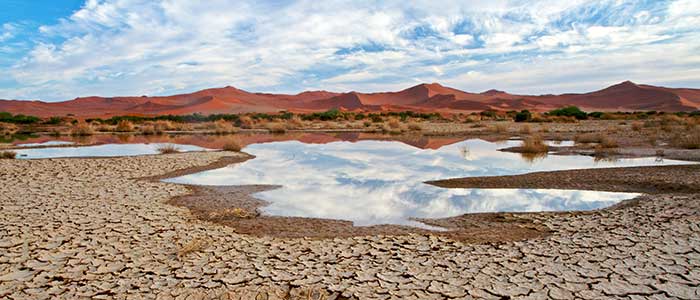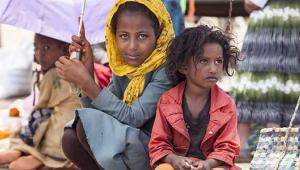Web_DroughtZambia_shutterstock_74778760.jpg

Drought in Africa
The money is included in the agency’s $50m appeal for its Ethiopia El Niño response plan, which is currently less than 10% funded.
The drought, massively exacerbated by cyclical weather phenomenon El Niño and one of the worst to hit the country in decades, has left as many as 18 million people relying on food assistance and decimated crops and livestock.
The FAO said the drought’s continuing effects mean that planting for the year’s first rainy season, known as the belg, has already been delayed. The meher season – Ethiopia’s main agricultural campaign that produces up to 85% of the nation’s food supplies – is fast approaching, and the FAO said farmers need immediate support to help them produce food between now and September.
Amadou Allahoury Diallo, FAO country representative, said the organisation is expecting needs to be particularly high during the next few weeks.
“It is critical we’re able to respond quickly and robustly to reboot agriculture now before the drought further decimates food security and livelihoods of millions,” he stressed.
Ethiopia’s Bureau of Agriculture estimates that some 7.5 million farmers and herders need immediate support to produce staple crops like maize or wheat, and livestock feed to keep their animals healthy and able to resume production
Allahoury Diallo emphasised that this is not just a food crisis, but “above all a livelihood crisis”. Many households have seen their purchasing power diminish and have been forced to sell their last remaining agricultural assets.
American international development agency USAID announced last week it has deployed a team of experts to assist the government of Ethiopia in dealing with the drought. The agency also announced it would donate $4m worth of drought-tolerant seeds.
Numerous other countries, including the UK, the EU and other individual member states have contributed funds to help alleviate the crisis, with many concerned it echoed the devastating drought of the 1980s, which caused widespread famine and killed hundreds of thousands of people.
Throughout Africa, and around the world, El Niño has caused severe weather. Most countries in Southern Africa are now struggling with severe food shortages.
In Zimbabwe, president Robert Mugabe declared a state of emergency and appealed to the country’s private and third sector to give $1.5bn to help.
Malawi too is enduring its worst food crisis in a decade, with some reports stating that food prices have risen by as much as 175%.












